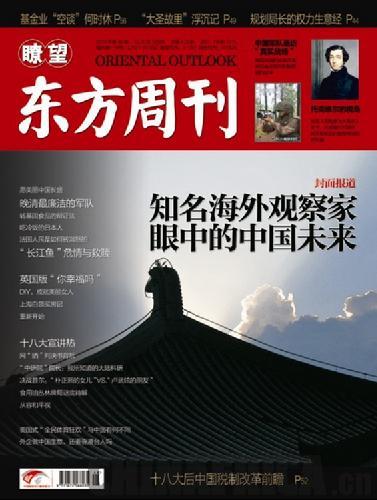| 
REVEALING CORRUPTION
China Economic Weekly
December 10, 2012
In China, Sina Weibo, a Twitter-like microblog, has a unique function: It reveals corruption.
This issue of China Economic Weekly examines this phenomenon. In exposing corruption, Weibo plays the role of information sources. Followed and forwarded, messages reach more and more people, including witnesses who provide details on the corruption and concerned government departments that will deal with it properly. Meanwhile, the anonymity of Weibo corruption complaints protects crime-reporters from reprisals.
However, fighting corruption in this way is not always effective. Sometimes Weibo posts spread rumors and infringe on people's privacy. While approving the function of microbloggers in exposing corruption, Li Manchun, Director of the Research Center for Anti-Corruption and Rule of Law at Central South University, suggested that concerned government departments should systematically collect scattered information and evidence posted on microblogs to make them formal evidence on specific corruption cases. These anti-corruption activities should also be institutionalized in order to guide the public, and help them properly exercise their rights.

3D PRINTING
China Newsweek
December 10, 2012
Technology makes life convenient and colorful. As people enjoy the advanced visual feast of 3D movies, another new 3D technology is developing: 3D printing.
In this issue, the magazine looks at the origin and development of this new printing method in China. The 3D printing is a process that transforms virtual computer designs into solid objects, which will revolutionize manufacturing and rapid prototyping. Despite difficulties with research, China has made a significant breakthrough in this field, even matching the abilities of world leaders in the field in some respects.
However, China still faces challenges in applying the technology, including low market recognition, sluggish commercialization and an incomplete industrial chain. If these problems are solved, applying such technology will become a unique opportunity to upgrade China's manufacturing industry as 3D printing changes the labor requirements for manufacturing.
FINING JAYWALKERS
Global Times
December 12, 2012
Police in Beijing recently initiated a campaign to discourage jaywalking, and caught 19 pedestrians crossing streets at red lights just in half an hour. Those traffic regulation violators were each fined 10 yuan ($1.6).
Such harsh punishment should be encouraged. The reason why there are fewer jaywalkers in Western countries is because of such punishments. Fining jaywalkers is not tantamount to harassing pedestrians. It actually protects and respects their right to life. Harsh fines will create a good atmosphere where everyone follows traffic regulations.
More importantly, such strict regulation should be continued.

CHINA'S FUTURE
Oriental Outlook
December 20, 2012
Mentions of China's future will always grab the world's attention, both in economic and political circles.
Oriental Outlook looks at overseas observers' views on China's future. Li Cheng, a senior research fellow at the John L. Thornton China Center located at the U.S.-based Brookings Institution, is optimistic about it. He believes that, with their life experience, idealism and realism, the new generation of Chinese senior officials will make great contributions to China's development.
As for the economy, Arvind Subramanian, an economist with the U.S. Peterson Institute for International Economics, predicted that RMB, China's currency, would replace the U.S. dollar and become world's dominant currency. The prerequisite for this is that China push forward necessary economic and political reforms, he noted.
SAFEGUARDING PUPILS
The Beijing News
December 17, 2012
About 22 pupils and an elderly woman were injured in a knife attack in Guangshan County in central China's Henan Province in December 2012.
As the tragedy unfolded, only one security guard was at the school, but did nothing to prevent the incident. Therefore, school security measures should be increased. There should be a standard to clarify how many security guards should be deployed to patrol inside schools, and rules establishing when and how guards should patrol. For rural primary schools that are vulnerable to security incidents, authorities should list school security expenses on government budgets. Furthermore, all of these measures must be strictly carried out. |